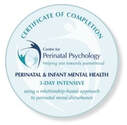Mindfulness is the quality of being present and fully engaged with whatever we’re doing at the moment — free from distraction or judgment, and aware of our thoughts and feelings without getting caught up in them. It is using our awareness to focus on what is real and present in the moment as opposed to being carried away with thinking of the future or past.
Many people obsess about things in the past and worry about what might happen in the future, creating stories that are often catastrophic. Constantly ruminating over what happened in the past, blaming and judging oneself for things that you could have or should have been said or done is fruitless and energy consuming.
The point of power is in the present moment. Everything happens in the present moment, and when we can relax into the reality of what is, in the present moment, we can let go of many thing that would otherwise distract and make us miserable.
This moment-to-moment awareness can be trained through meditation, allowing us to build the skill of mindfulness so that we can then apply it to everyday life. In meditation we train the mind to stay with the body or the breath, we teach the ‘monkey mind’ to keep returning the same spot. We may never get the mind to be completely still, but this is not the aim.
The aim is not to sit in a state of mindlessness, a void, while this might happen it is only ever momentary, because it is the essence of the mind to be active. However, the practice of meditation makes the act of present-centred awareness easier. In fact we develop the capacity of our frontal lobes to control our lower reactive brain areas whenever we meditate.
However, we don’t even have to sit and meditate we can also practice turning our awareness to what we are doing, who we are being, or what we are thinking, and track our thoughts and actions with impartiality. This is active awareness and while it is nice to be still, if we can train our self to be present and aware of our reflexive way of reacting to things or the stories we repeat about ourselves and others, then we are practicing mindful awareness.
In the same way that we exercise to stay fit and make every day activities easier, practicing present-mindedness or mediation makes us more emotionally and cognitively flexible. In teaching the mind to be present, we are teaching ourselves to live more mindfully — in the present, and not giving in to reactive thoughts and feelings. Eventually we develop greater control over our repetitive ways of thinking and reacting.
Many people obsess about things in the past and worry about what might happen in the future, creating stories that are often catastrophic. Constantly ruminating over what happened in the past, blaming and judging oneself for things that you could have or should have been said or done is fruitless and energy consuming.
The point of power is in the present moment. Everything happens in the present moment, and when we can relax into the reality of what is, in the present moment, we can let go of many thing that would otherwise distract and make us miserable.
This moment-to-moment awareness can be trained through meditation, allowing us to build the skill of mindfulness so that we can then apply it to everyday life. In meditation we train the mind to stay with the body or the breath, we teach the ‘monkey mind’ to keep returning the same spot. We may never get the mind to be completely still, but this is not the aim.
The aim is not to sit in a state of mindlessness, a void, while this might happen it is only ever momentary, because it is the essence of the mind to be active. However, the practice of meditation makes the act of present-centred awareness easier. In fact we develop the capacity of our frontal lobes to control our lower reactive brain areas whenever we meditate.
However, we don’t even have to sit and meditate we can also practice turning our awareness to what we are doing, who we are being, or what we are thinking, and track our thoughts and actions with impartiality. This is active awareness and while it is nice to be still, if we can train our self to be present and aware of our reflexive way of reacting to things or the stories we repeat about ourselves and others, then we are practicing mindful awareness.
In the same way that we exercise to stay fit and make every day activities easier, practicing present-mindedness or mediation makes us more emotionally and cognitively flexible. In teaching the mind to be present, we are teaching ourselves to live more mindfully — in the present, and not giving in to reactive thoughts and feelings. Eventually we develop greater control over our repetitive ways of thinking and reacting.



